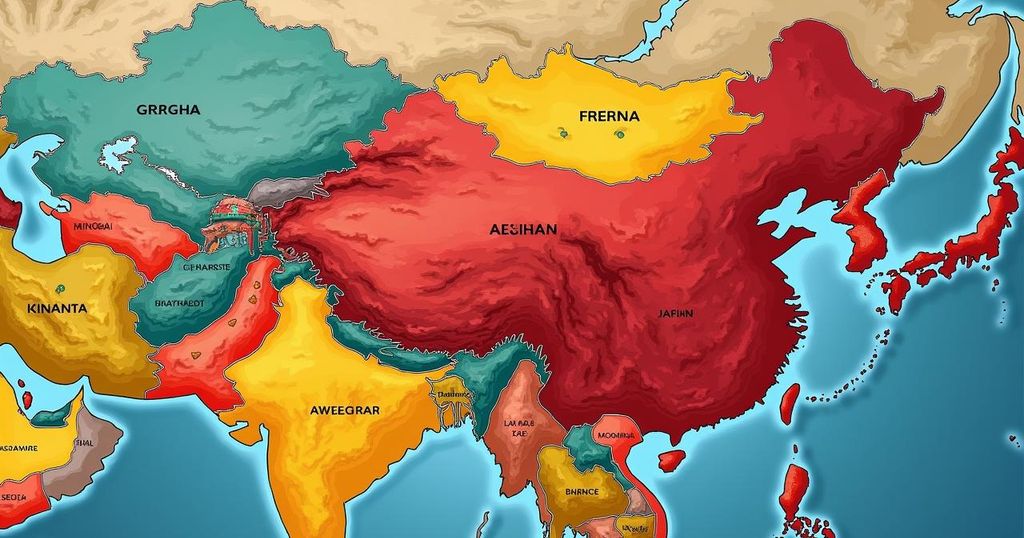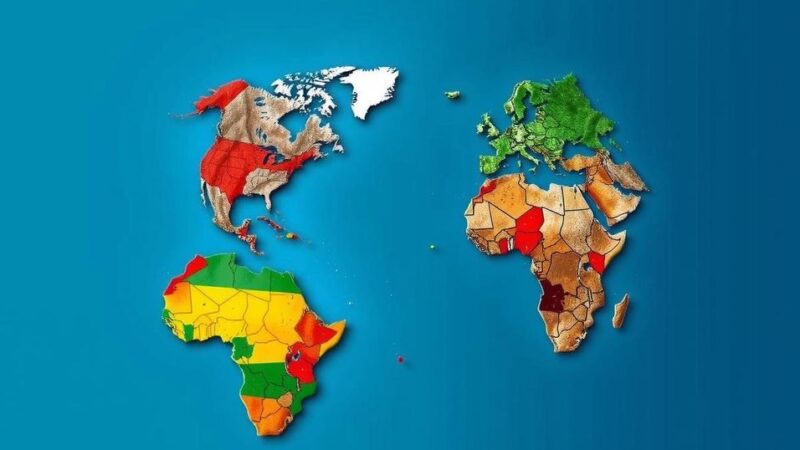The article outlines the growing support for the International Law Commission’s Draft Articles on Crimes Against Humanity among Asian States, highlighting their varied historical positions and the role of the Asian-African Legal Consultative Organization in fostering dialogue. It emphasizes the need for active engagement from Asian nations to participate in shaping legal frameworks addressing crimes against humanity thoroughly.
The international landscape regarding crimes against humanity (CAH) is shifting, particularly within the context of the Asian States. The Draft Articles on Prevention and Punishment of Crimes Against Humanity, developed by the International Law Commission (ILC) and presented to the United Nations General Assembly’s Sixth Committee, have gained traction since their adoption in 2019. However, they have faced delays due to a lack of consensus on the subsequent steps forward. A notable development occurred when a cross-regional resolution in 2022 called for resumed sessions to address the Draft Articles. These sessions are significant as they provide a platform for Asian States to clarify their positions and engage actively in the discourse surrounding CAH. The Asian-African Legal Consultative Organization (AALCO), established in 1956, serves as a pivotal regional institution bolstering the voice of Asian and African nations in international legal matters. It provides a forum for member states to articulate and harmonize their legal positions regarding various international law topics, including the Draft Articles on CAH. Over the years, AALCO has witnessed varying levels of support among its members regarding the Draft Articles, illustrating a spectrum of perspectives on international obligations pertaining to crimes against humanity. Between 2016 to 2019, positions among Asian States varied widely. Malaysia initially expressed skepticism about the necessity of the Draft Articles, suggesting that existing international frameworks, such as the Rome Statute, sufficiently covered the issue. China also questioned the relevance of a new convention, challenging the empirical basis for the ILC’s proposals and emphasizing that existing frameworks should prevail. Conversely, the Republic of Korea and Japan demonstrated supportive stances, advocating for coherence with existing legal norms and frameworks. Recent developments reflect a growing support for the convention among several Asian states. Malaysia has reversed its earlier position, now expressing support for the Draft Articles, while Thailand is proactively seeking recommendations for their adoption, viewing them as instrumental for strengthening accountability for crimes against humanity. Meanwhile, Vietnam’s approach is more cautious, advocating for thorough analysis. Despite this emerging support, AALCO has not included the CAH Convention in its recent agenda, highlighting the need for a concerted effort to place it back into active discussion. The importance of these Draft Articles cannot be understated, as they aim to fill critical gaps in international law, ensuring state accountability for crimes against humanity and enhancing inter-state cooperation in addressing such violations. If the Sixth Committee advances toward adopting the convention, the implications for participating states, especially from the Asian bloc, call for diligent engagement to prevent a fragmented treaty-making process. Thus, the potential for the AALCO to elevate the discussion on crimes against humanity and foster cohesion among Asian-African nations is significant. A proactive strategy could help to articulate a unified stance on the Draft Articles, thus contributing to the broader goal of enhancing international legal standards and accountability mechanisms for crimes against humanity.
The rising support for the International Law Commission’s Draft Articles on Crimes Against Humanity presents a critical opportunity for Asian States to engage more robustly in international law discussions. The ongoing deliberations within the United Nations General Assembly’s Sixth Committee underscore the urgency of addressing crimes against humanity post-2019. AALCO, an essential platform for Asian and African nations’ legal discussions, facilitates this engagement through its annual sessions and collaborative frameworks. Understanding the varied historical positions of Asian States on this issue provides context to the current discussions and the potential for formulating a comprehensive legal framework.
In summary, the increasing support for the Draft Articles on Crimes Against Humanity among Asian States signifies a potential shift towards addressing critical gaps in international law regarding state accountability. The role of AALCO remains crucial in providing a platform for these discussions, especially as a consensus builds towards potentially advancing a convention. Active participation from Asian nations will be paramount in shaping the future of international responses to crimes against humanity, ensuring that these discussions yield robust legal frameworks that foster accountability and cooperation on a global scale.
Original Source: opiniojuris.org






